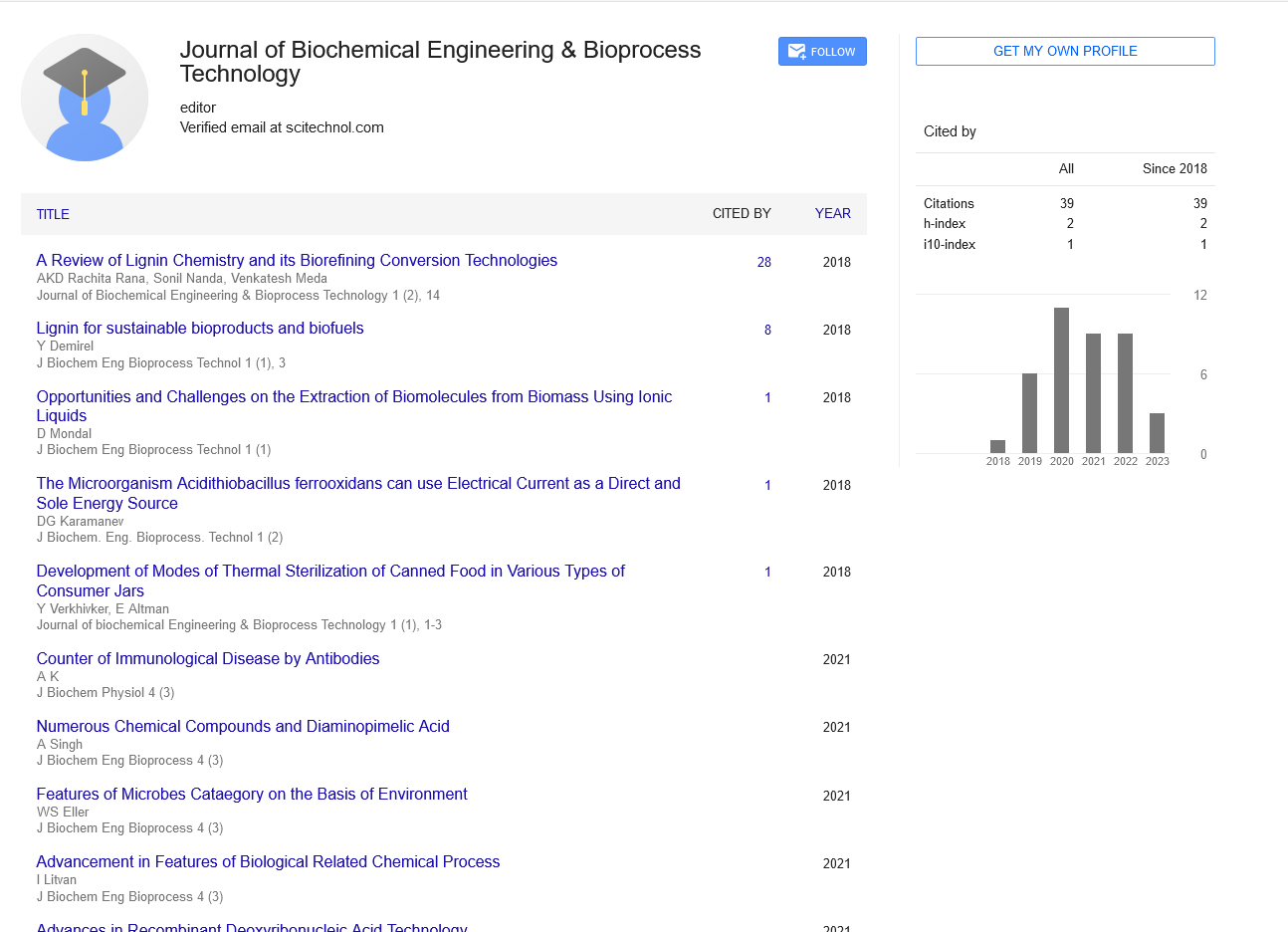Short Communication, J Biochem Eng Bioprocess Technol Vol: 3 Issue: 2
9th World Congress on Biopolymers & Bioplastics Theme: Biopolymers: A path towards sustainable future
Geoffrey R. MitchellCentre for Rapid Product Development, Polytechnic of Leiria, Portugal
Email: geoffrey.mitchell@ipleiria.pt
Biopolymers simply are polymers that are obtained from living organisms and are completely biodegradable. Some common examples of biopolymers include proteins, carbohydrates, DNA, RNA, lipids, nucleic acids, and peptides. Since these are composed out of living beings, they are completely neutral towards carbon and can be easily recycled or renewed. Biopolymers do not create any carbon dioxide pollution because crops absorb the CO2 emitted by them instead of getting released in the atmosphere. There are four different kinds of biopolymerssugar based biopolymers, cellulose based biopolymers, synthetic based biopolymers, and natural polymers. Market is changing rapidly with the ongoing expansion of the industry. Advancement in the technology has provided today’s businesses with multifaceted advantages resulting in daily economic shifts. Thus, it is very important for a company to comprehend the patterns of the market movements in order to strategize better. An efficient strategy offers the companies with a head start in planning and an edge over the competitors.
The organizing committee is gearing up for an informative conference program including plenary lectures, symposia, workshops on a variety of topics, poster presentations and various programs for participants from all over the world. We invite you to join us at the Biopolymers-2020, where you will be sure to have a meaningful experience with scholars from around the world. All members of the Biopolymers-2020 organizing committee look forward to meeting you in Zurich, Switzerland.
Importance & Scope:
Plastics materials are used worldwide today for multitude of application. Most of these plastics are derived from petroleum and are not biodegradable. The nonrenewable sources are decreasing steadily due to the high consumption. Due to unorganized and improper disposal, non degradable plastics causing harm to the environment. Derived from renewable resources such as edible and non edible crops. Reduces the dependence of fossil fuel. Carbon dioxide neutral and zero carbon foot print. Bio degradable and bio based has end of disposal options. Biopolymers can be sustainable, carbon neutral and are always renewable. Raw materials for biopolymers come from agricultural nonfood crops. Therefore, the use of biopolymers would create a sustainable industry.
Futures of Biopolymers demand the manufacturer for new materials is overwhelming. However the costeffectiveness of the materials must progress as they are contributed specifically for sustainable development. Applications by the use of new materials should utilize the properties of these polymers, and the products should be developed based on those properties. They are onset to arrive as a result to be more responsible in taking care of the world we live in. Thus, the recent development for the bio-based products rather than petroleum or natural gas based products. The use of biopolymers could markedly increase as more reliable form for the development and the cost to manufacture these bioplastics continues to go fall. Bioplastics can be replaced with conventional plastics in the field of application which can be used in various categories such as food packaging, plastic plates, cups, cutlery, plastic storage bags, storage containers or other plastic or composite materials items you are buying and therefore can help in making environment sustainable. Biobased polymers are adjacent to the conventional polymers than ever before. Now a day, biobased polymers are commonly found in various applications from commodity to hi-tech applications due to advance research development in biotechnology and public awareness.
Why Zurich:
Zurichisthe largest city in Switzerland and the capital of the canton of Zürich. It is located in north-central Switzerland at the north-western tip of Lake Zürich. Zürich is a leading global city and among the world's largest financial centres despite having a relatively small population. The city is home to many financial institutions and banking companies. Many of Switzerland's research and development centres are concentrated in the Greater Zürich area and the low tax rates and canton funding subsidies attract overseas companies to set up their headquarters or finance treasury services in the city. The Zurich people and the government both are planned to control the pollution for future generation so they planned to use different methods to control the pollution.
According to the survey Zurich is the “Best quality of life” in the world as well as in European countries. Some examples are the new disinfection section of the public city hospital in Trieml, the continued optimisation and creation of public transportation, enlargement of the bicycle-only network, research and projects for renewable energy and enclosure of speed-ways.
The city is among the world-leaders in protecting the climate by following a manifold approach. In November 2008 the people of Zürich voted in a public referendum to write into law the quantifiable and fixed deadline of one tonne of CO2 per person per annum by 2050. This forces any decision of the executive to support this goal, even if the costs are higher in all dimensions.
The "green lungs" of the city include the vast forest areas of Adlisberg, Zürichberg, Käferberg, Hönggerberg and Uetliberg. Major parks are also located along the lakeshore (Zürichhorn and Enge), while smaller parks dot the city. Final approved abstract will consider for outstanding speaker awards.
-
9th World Congress on Biopolymers & Bioplastics
Osaka, Japan
 Spanish
Spanish  Chinese
Chinese  Russian
Russian  German
German  French
French  Japanese
Japanese  Portuguese
Portuguese  Hindi
Hindi 